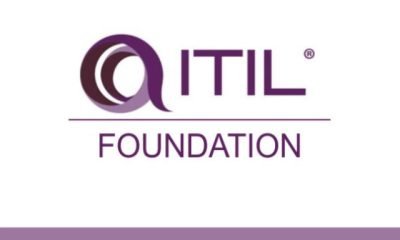Health
Top 5 Popular Vitamins to Strengthen Immunity


If the body began to resist diseases worse, special preparations may be required to strengthen immunity – special vitamin-mineral complexes and dietary supplements. I’ll tell you about 5 options with a good composition that are popular with buyers.
Immunity is the innate ability of the body to resist hostile viruses, bacteria, fungi, and protozoa. Usually, special cells are produced in the blood for this – the body’s immune response. If a person’s immunity is weakened, viruses and bacteria do not meet with worthy resistance and are introduced into organs and tissues. Sometimes this is indicated by frequent colds with a slow recovery, dry skin, hair loss, and brittle, exfoliating nails. A course intake of balanced vitamin and mineral complexes can help strengthen the immune system. The effect of drugs is different: some accelerate metabolic processes and hence regeneration. Others increase the number of beneficial bacteria in the intestinal microflora and ensure proper absorption of nutrients. Still, others increase vitality and mobilize the body to fight infectious pathogens. You can also strengthen the immune system with the help of bioactive additives, which, in addition to vitamins, micro-and macroelements, contain extracts of medicinal plants.
How do vitamins affect the immune system?
They are necessary for a person to maintain metabolic processes. Their role is to speed up or maintain the rate of a reaction between other substances. Therefore, protein synthesis and the production of many cell components depend on their presence.
Proteins are an important component of immunity, they:
- it is part of an antibody that blocks foreign microorganisms;
- help to form a zone of inflammation so that the infection does not get into other tissues;
- regulate the rate of reproduction of immune cells;
- participate in allergic reactions;
- protect organs from attack by the immune system and the development of autoimmune reactions.
If a person does not receive the right amount of vitamins, there is less protein, and these functions are impaired.
Vitamin D
In the first place among the means to strengthen the immune system is vitamin D or calciferol. Its production occurs in the skin under the influence of ultraviolet radiation in all adults. But in the winter season, in the northern latitudes, where there is little sunlight, the body lacks calciferol. Due to hypovitaminosis, immunity decreases, calcium absorption worsens, osteoporosis may develop. In children, vitamin deficiency leads to rickets. The functions of vitamin D are different. With its participation, antitumor immunity is carried out; several clinical studies have been conducted, according to which, with normal content of vitamins D, the risk of developing, for example, bowel cancer is reduced by almost four times. Currently, the possibility of using vitamins of this group in the treatment of psoriasis, osteoporosis, overweight, cardiovascular diseases is being investigated; Vitamin D is used to reduce age-related changes in tissues, prevent such serious diseases as Alzheimer’s disease, various types of dementia and diseases that destroy the nerve sheath, muscle weakness, etc.
On your own (at home), you can increase the content of calciferol with fish oil by eating a large amount of wild-raised sea fish, eggs (yolk), dairy products, algae, caviar, corn oil, some types of wild mushrooms. Adults can use complexes that contain cholecalciferol and calcium to improve immunity and maintain bone mineral density.
Group B
B vitamins include several types of substances. At home, they can be obtained from animal products: milk, eggs, liver, cereals, legumes, nuts, meat, seafood, potatoes.
The effect on immunity lies in the ability to improve antimicrobial protection, increase the production of T and B-lymphocytes that fight pathogenic microorganisms.
Beautiful and healthy skin, normal vision, in combination with B9, it improves blood formation processes. it stimulates the formation of phosphoric acid – “gasoline” for the work of cells. Lack of vitamin B2 manifests itself in the form of digestive disorders, the development of conjunctivitis, stomatitis, seborrheic dermatitis. In HIV patients, hypovitaminosis accelerates the transition of the disease to a more severe stage.
To strengthen the immune system, vitamin preparations of group B are produced in the form of separate products of each type or ready-made complexes of 2 or more components. In some cases, for a quick effect, the doctor may prescribe an injection solution.
Echinacea
Echinacea is used to treat a wide variety of ailments, including colds, toothaches, ulcers, wounds, and herpes. Echinacea has shown itself as a means of stimulating and modeling the immune system. Echinacea is currently being researched for the treatment of cancer, arthritis, and chronic fatigue syndrome. Laboratory and clinical studies have shown that echinacea acts as an antibiotic and is the most powerful and effective immune system stimulant of all herbal remedies known. insufficiently effective antibacterial and anti-inflammatory therapy. Echinacea preparations inhibit the growth and reproduction of streptococcus, staphylococcus, E. coli, which are effective in inflammatory diseases, various wound processes, and microbial eczema.
Vitamin C
When the first signs of a cold appear, ascorbic acid, or vitamin C, helps to quickly strengthen the immune system. It can be found in most plant products:
- sauerkraut;
- currant;
- spinach;
- sweet pepper;
- tomatoes;
- wild rose;
- citrus fruits.
But ascorbic acid is destroyed when heated to 60 ° C, so thermally processed food, tea is no longer able to support the immune system. A good way is to use ready-made preparations in which the exact dosage of the active substance is known. Vitamin C enhances the production of all types of antibodies, increases the activity of macrophage cells that absorb foreign microorganisms and dangerous substances. It helps to strengthen the vascular wall, normalizes metabolic processes in the liver, and neutralizes toxins in it.
Vitamin A
Studies have shown that retinol, or vitamin A, enhances the synthesis of interleukin proteins. They stimulate the division of T-lymphocytes. These cells are active participants in immune responses, they detect and destroy viruses and bacteria, and fight tumor cells. The use of retinol preparations can increase resistance to infections, speed up recovery and provide antioxidant protection. Retinol can be found in common products. It is found in large quantities in carrots, eggs, cod liver, milk, and butter. It is abundant in sage, basil, paprika, and hawthorn.


Health
Educational Initiatives for Philadelphia Healthcare Professionals to Prevent Malpractice


In the dynamic and high-stakes environment of healthcare, continuous education, and training are essential for professionals aiming to provide the highest standard of care and minimize the risk of medical malpractice.
Philadelphia, a city known for its prestigious medical institutions and hospitals, is at the forefront of implementing educational initiatives designed to enhance patient safety and reduce errors.
These programs not only benefit healthcare providers by expanding their knowledge and skills but also play a critical role in safeguarding patient well-being.
For individuals affected by medical malpractice, understanding the role of these educational initiatives can offer insight into the standards of care they should expect. Consulting with a Philadelphia medical malpractice lawyer can provide victims with the necessary information on how deviations from these standards may contribute to legal claims.
As the medical field evolves, so too does the legal landscape, making it crucial for healthcare professionals and patients alike to stay informed about the latest developments in patient care and malpractice prevention.
Simulation-Based Training Programs
Simulation-based training has become a cornerstone of medical education, offering healthcare professionals a risk-free environment to practice procedures, diagnose conditions, and make critical decisions.
By replicating real-life medical scenarios through advanced technology, such as mannequins and virtual reality, practitioners can hone their skills, learn from mistakes, and improve their clinical judgment without putting patients at risk.
Philadelphia’s medical schools and hospitals have integrated these simulations into their training regimens, recognizing the value of experiential learning in enhancing patient care and reducing errors.
These programs are particularly effective in preparing medical staff for emergencies, complex surgeries, and rare conditions that they may not encounter frequently in clinical practice.
The feedback and assessment provided during simulation exercises are invaluable for personal development and team collaboration, ensuring that healthcare professionals are better equipped to handle challenging situations in real-world settings.
As a result, simulation-based training is a critical component in the ongoing effort to prevent medical malpractice and improve patient outcomes.
Continuing Medical Education (CME) Courses
Continuing Medical Education (CME) courses are a requirement for healthcare professionals seeking to maintain their licensure and certification. These courses offer up-to-date information on the latest medical advancements, treatment protocols, and healthcare technologies, ensuring that providers stay informed about current best practices.
In Philadelphia, hospitals, medical associations, and academic institutions offer a wide range of CME opportunities, covering diverse specialties and areas of interest.
The emphasis on lifelong learning through CME reflects the understanding that medicine is an ever-evolving field.
By actively participating in these educational opportunities, healthcare professionals can keep their knowledge base current, adapt to new developments in patient care, and minimize the likelihood of errors that could lead to malpractice claims.
Furthermore, CME courses often include topics directly related to patient safety, ethics, and legal aspects of healthcare, providing a holistic approach to professional development.
Interdisciplinary Team Training
Interdisciplinary team training programs focus on enhancing communication and collaboration among various healthcare professionals, including doctors, nurses, pharmacists, and support staff. Effective teamwork is crucial in a complex healthcare system, where miscommunication and misunderstandings can lead to errors and adverse patient outcomes.
By fostering a culture of open dialogue and mutual respect, these training initiatives aim to improve the coordination of care and ensure that all team members are aligned in their approach to patient safety.
Philadelphia’s healthcare institutions have recognized the value of interdisciplinary training in promoting a cohesive care environment. Workshops, seminars, and team-building exercises are regularly conducted to strengthen the dynamics within medical teams, emphasizing the shared responsibility for preventing malpractice.
These initiatives not only enhance patient care but also contribute to a more positive and supportive workplace atmosphere, ultimately benefiting both providers and patients.
Patient Safety and Risk Management Education
Dedicated programs on patient safety and risk management are essential components of medical education, aimed at identifying, evaluating, and mitigating risks that could lead to malpractice.
These courses cover a broad spectrum of topics, including informed consent procedures, accurate documentation practices, and strategies for disclosing medical errors. For healthcare professionals in Philadelphia, such education is integral to developing a proactive approach to preventing malpractice, ensuring that potential issues are addressed before they escalate into serious problems.
Risk management education also emphasizes the importance of a systematic approach to error analysis, encouraging healthcare institutions to learn from incidents and implement changes to prevent recurrence. By ingraining these principles into the fabric of healthcare practice, Philadelphia aims to lead by example in establishing high standards for patient safety and malpractice prevention.
Embracing Digital Health Innovations
The integration of digital health innovations into medical practice is an emerging focus of educational initiatives aimed at preventing malpractice. Healthcare apps, electronic health records (EHRs), and telemedicine platforms are increasingly being adopted to enhance patient care and safety.
Philadelphia’s healthcare community is at the forefront of this digital transformation, offering training sessions and workshops for professionals to effectively utilize these technologies. By familiarizing themselves with digital tools, healthcare providers can minimize errors related to manual record-keeping, improve patient communication, and facilitate better coordination of care.
These technologies also offer the potential for real-time monitoring of patient health, predictive analytics for disease prevention, and personalized medicine. However, their successful implementation relies on healthcare professionals’ ability to navigate these digital platforms competently.
As such, educational programs are expanding their curricula to include digital literacy and data security practices, ensuring that providers are not only adept at using technology to enhance patient care but also vigilant in protecting patient privacy and sensitive medical information.
Fostering a Culture of Accountability and Transparency
Another critical aspect of preventing medical malpractice involves fostering a culture of accountability and transparency within healthcare organizations. Educational programs in Philadelphia are increasingly focusing on ethical practice, encouraging healthcare professionals to take responsibility for their actions and openly communicate with patients, especially when errors occur.
Workshops on ethical decision-making, patient rights, and the importance of clear, compassionate communication are becoming staples in medical training, aiming to build trust between providers and patients.
Creating an environment where mistakes are openly discussed and analyzed without fear of retribution is essential for learning and improvement. Healthcare professionals are encouraged to report near misses and errors, which can then be used as educational tools to prevent similar incidents in the future.
This approach not only helps in reducing the occurrence of malpractice but also strengthens the overall healthcare system by promoting continuous learning and improvement. Through these initiatives, Philadelphia aims to lead by example, showing that a commitment to education, ethics, and patient-centered care is the foundation of a safe and effective healthcare system.
Health
Smile Brighter: Unlocking New Career Opportunities with an Online Dental Assistant Course


The healthcare industry is witnessing an unprecedented shift towards digital education, transforming how professional skills are acquired and developed. This digital evolution is particularly significant in specialized fields like dental assistance, where the demand for skilled professionals continues to grow.
Online education platforms are playing a pivotal role in this transformation, offering accessible and flexible learning options that were once unimaginable. These platforms have made it possible for individuals to pursue new career paths and enhance their skills without the constraints of traditional classroom learning.
Taking up an online dental assistant course represents a significant step towards a career in the vibrant world of healthcare. It’s an opportunity to gain comprehensive knowledge and essential skills in a field that is both challenging and rewarding.
The flexibility and convenience of online learning make these courses particularly appealing, offering a modern approach to education that fits into the busy lives of aspiring dental professionals.
Through these courses, students can start on a journey of personal and professional growth, unlocking new career opportunities and the potential to positively impact the dental health community.
The Digital Edge in Dental Assistance Education
The advent of online education has revolutionized the way we approach learning, especially in specialized fields like dental assistance. This digital shift brings a host of benefits that enhance the educational experience, making it more adaptable and resource-rich than ever before.
Let’s explore the key aspects that give online dental assistant courses their unique edge.
- Access to Expert Knowledge and Resources
Online courses in dental assistance offer unprecedented access to expert knowledge and a wide array of digital resources. Learners have the opportunity to engage with expert lectures, interactive learning modules, and a diverse range of online materials. This access ensures that students receive an educational experience that is as rich and comprehensive as what is offered in traditional classroom settings.
- Flexibility and Convenience
Flexibility is one of the most significant advantages of online learning. These courses allow students to balance their studies with personal and professional responsibilities. This level of convenience makes the courses accessible to a broader range of students, including those who might find it challenging to attend in-person classes due to work commitments, family obligations, or living in remote areas.
- Enhanced Learning Through Technology
The integration of technology in online dental assistant courses significantly enhances the learning process. Innovative tools such as virtual simulations, interactive case studies, and online collaboration platforms enable students to grasp complex concepts more effectively. This technology-driven approach not only enriches the learning experience but also prepares students for a technologically advanced workplace.
Comprehensive Curriculum and Skill Development
Online dental assistant courses boast a comprehensive curriculum that spans a wide array of crucial topics. The content ranges from patient care techniques and dental procedures to the nuances of dental office management. This ensures that students receive a well-rounded education, arming them with the theoretical knowledge necessary to excel in the field of dental assistance.
In addition to theoretical learning, these courses place a significant emphasis on skill development. This is achieved through a variety of hands-on experiences, which are crucial for translating theoretical knowledge into practical application. The skills gained are directly applicable in a modern dental workplace, preparing students for the realities of their future profession.
To provide practical experience, many online courses utilize virtual simulations and interactive exercises. These cutting-edge methods allow students to engage in realistic scenarios, enhancing their ability to develop essential practical skills.
Such experiences are instrumental in preparing students for the real-world demands of dental assistance, bridging the gap between classroom learning and on-the-job performance.
Career Prospects and Industry Demand
The career prospects for graduates of online dental assistant courses are both diverse and promising. These courses not only prepare students for the immediate demands of the dental field but also set them up for long-term career success.
Let’s explore the key career opportunities and how they align with industry demands:
- A Stepping Stone to a Flourishing Career: Completing an online dental assistant course opens up a variety of career paths. Graduates are well-equipped for roles in different settings such as private dental practices, hospitals, and dental care facilities, thanks to the comprehensive training they receive.
- Meeting the Demand for Skilled Professionals: There is a consistent demand for skilled dental assistants in the industry. An online qualification positions graduates to fulfill this need effectively, allowing them to contribute their expertise to a sector that highly values skilled professionals.
- Advancement into Higher Roles: Beyond entry-level positions, these courses also lay the groundwork for career advancement. Graduates have the potential to progress into higher roles within the dental field, such as office management, dental sales, or even further education and specialization.
Networking and Professional Growth
Networking and professional growth are key components of online dental assistant courses. These programs frequently include features like community forums and opportunities for networking, which are essential for building connections within the dental community.
Through these platforms, students can engage with peers and experienced professionals, fostering relationships that are invaluable for career advancement and potential collaborative projects. Such networks can be a significant asset throughout one’s career, offering support, guidance, and opportunities for professional development.
The field of dental assistance is dynamic, with continuous advancements in technology and practices. Online courses are designed to cater to this evolving nature, providing pathways for ongoing learning and development.
This aspect of the courses ensures that graduates remain up-to-date and competent in the ever-changing landscape of dental healthcare. Continuous learning is integral to maintaining professional relevance and enhancing skills, which is crucial for long-term success in the field.
Embracing a Future in Dental Healthcare
Choosing an online dental assistant course is a smart decision for those looking to enter or progress in the healthcare sector. These courses not only provide comprehensive training but also offer the flexibility and opportunities needed to succeed in today’s fast-paced world.
Graduates emerge with the skills, knowledge, and connections necessary to thrive in the dental industry, ready to make a positive impact on patient care and experience a rewarding career.
Health
Is Your Full Body Checkup Package Comprehensive Enough? 15 Key Features to Look for


When it comes to maintaining good health, getting a comprehensive full-body checkup is essential. It provides valuable insights into your overall well-being and helps detect potential issues related to your body early on.
So, in this article, you’ll explore 15 key features to look for in a package based on a full body checkup at home to ensure it covers all your health needs.
1. Wide Range of Tests
A Comprehensive Full Body Checkup should encompass a wide range of tests, from basic blood work to specialized screenings for various parameters. This ensures that your health is thoroughly evaluated and any underlying issues can be addressed promptly, promoting overall well-being and peace of mind.
2. Basic Blood Tests
These tests, including complete blood count (CBC) and lipid profile, provide vital information about your overall health. So, regular monitoring of these parameters allows you to track your progress over time and make necessary adjustments to your lifestyle, ultimately contributing to a healthier and more fulfilling life.
3. Advanced Lipid Profile
A more detailed lipid profile helps assess your cholesterol levels and risk of heart disease. Understanding your lipid profile can motivate you to make dietary changes and adopt a heart-healthy lifestyle, further enhancing your chances of long-term health and well-being.
4. Blood Pressure Measurement
Regular monitoring of blood pressure is crucial for detecting hypertension, a common concern. It helps you keep tabs on your cardiovascular health and take preventive measures if needed. So, by staying informed about your blood pressure, you can work towards maintaining optimal heart rate and reducing the risk of related complications in the future.
5. Blood Sugar Tests
Diabetes is a growing health issue, so including fasting and post-meal blood sugar tests is essential. Full Body Checkup Plans can help you catch diabetes in its early stages and guide you in managing your blood sugar levels effectively. Early intervention and proper management can significantly improve your quality of life and reduce the risk of diabetes-related complications.
6. Liver Function Tests
Evaluating liver function can detect liver diseases and ensure optimal liver health. Knowledge of your liver’s condition empowers you to make dietary and lifestyle choices that support liver function. Regular assessments of liver function are crucial for maintaining overall well-being and preventing liver-related issues in the long run.
7. Kidney Function Tests
Include Kidney function tests in your Full Body Checkup Checklist as they assess the well-being of your kidneys, which play a vital role in filtering toxins from your body. Regular kidney function evaluations help identify issues early and protect your renal health. Monitoring kidney function is essential for maintaining the overall body and preventing kidney-related complications.
8. Thyroid Function Tests
Thyroid disorders can impact various bodily functions, so thyroid function tests should be included. Managing thyroid health is key to maintaining overall well-being. Regular assessments of thyroid function can help detect and address any thyroid-related issues early, ensuring optimal vitality.
9. Complete Urine Analysis
This test helps identify kidney and urinary tract problems and may also detect signs of diabetes. It provides valuable information about your urinary well-being, which is often overlooked.
10. Electrocardiogram (ECG)
An ECG measures heart activity and is crucial for identifying heart-related issues. Regular ECGs can track changes in your heart’s electrical patterns and aid in the early detection of heart problems.
11. Chest X-Ray
A chest X-ray can detect lung and heart problems, making it an important part of a comprehensive checkup. It offers a visual assessment of your chest area, helping to spot abnormalities.
12. Bone Density Scan
For older adults, assessing bone density can help in the early detection of osteoporosis. Regular bone density scans can guide you in preventing fractures and maintaining strong bones.
13. Vision and Hearing Tests
Vision and hearing assessments are crucial for maintaining sensory health. They enable you to address vision or hearing impairments and enhance your overall quality of life.
14. Body Mass Index (BMI) Calculation
BMI calculation helps evaluate your weight and assess the risk of obesity-related conditions. Monitoring your BMI can motivate you to make healthier lifestyle choices.
15. Nutritional Counseling
Guidance on proper nutrition and lifestyle habits can help you make healthier choices. It equips you with the knowledge to maintain a balanced diet and overall wellness.
Conclusion
Choosing the right full body checkup at home is vital for maintaining your health and well-being. Look for a package that offers these 15 key features to ensure comprehensive coverage of your needs.
Regular checkups help in the early detection of issues and empower you to take proactive steps toward a healthier future. Prioritize your well-being and make informed decisions when selecting a full body checkup package.
Remember, your health is your most valuable asset, and investing in regular checkups is an investment in a healthier, happier life.



 Health11 months ago
Health11 months ago6 Best Ways to Get Quality Sleep



 Social Media11 months ago
Social Media11 months agoLinda Yaccarino: Twitter’s New CEO from NBCUniversal



 Work11 months ago
Work11 months agoFive Things Employees Look for in a Job Role



 shopping12 months ago
shopping12 months agoEssential Tips for Buying Jewelry Online



 Finance12 months ago
Finance12 months agoHow Can You Find Affordable Auto Insurance Using iSelect?



 Tech12 months ago
Tech12 months agoWhat Are the Advantages of ITIL Foundation Certification for Organizations?



 Entertainment11 months ago
Entertainment11 months ago5 Famous Gamblers and Their Most Memorable Quotes



 Education9 months ago
Education9 months ago7 Tips for Writing Short Stories That Captivate and Resonate




















